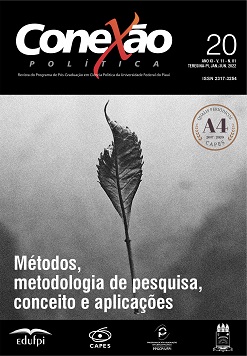WHAT CONSTITUES A GOOD POSITIVE THEORY IN POLITICAL SCIENCE?
DOI:
https://doi.org/10.26694/2317-3254.rcp.v11i1.5446Keywords:
Positive theoretical research, Political Science, Research design, EpistemologyAbstract
This article aims to conduct a brief discussion about the possibility
of enumerating previously defined criteria for the criticism of positive theories in Political Science. We investigate the extent to which it is possible to systematize criteria that support successful theoretical choices in depending less on personal or group preferences, especially when dealing with alternative theories. This research consists of an analytical exercise in ordering the desirable attributes of good theory, according to criteria extracted from five authors, Thomas Kuhn (2011); Van Evera (1997); Dimiter Toshkov (2016), and List and Valentini (2016). The systematization effort demonstrated, among other results, that there is a great diversification of the desirable criteria for a good theory, and that only parsimony was recurrent among the consulted authors. Taken together, the analyzes contribute to the development of positive theoretical research designs and to the choice between alternative, competitive or rival theoretical frameworks.




